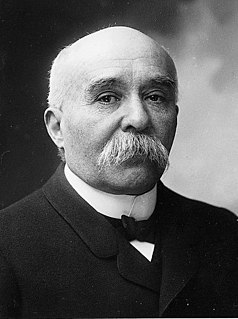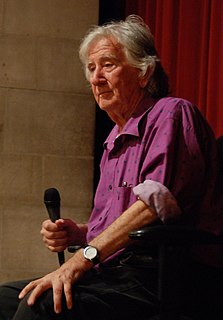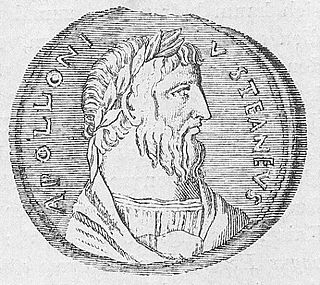A Quote by Georges Clemenceau
When a man asks himself what is meant by action he proves he isn't a man of action.
Related Quotes
The manager-leader of the future should combine in one personality the robust, realistic quality of the man of action with the insight of the artist, the religious leader, the poet, who explains man to himself. The man of action alone or the man of contemplation alone will not be enough; these two qualities together are required.
Relationship is action, is it not? Action has meaning only in relationship; without understanding relationship, action on any level will only breed conflict. The understanding of relationship is infinitely more important than the search for any plan of action. The ideology, the pattern for action, prevents action. Action based on ideology hinders the understanding of relationship between man and man.
Theatre has nothing to do with buildings or other physical constructions. Theatre - or theatricality - is the capacity, this human property which allows man to observe himself in action, in activity. Man can see himself in the act of seeing, in the act of acting, in the act of feeling, the act of thinking. Feel himself feeling, think himself thinking.
A man must fortify himself and understand that a wise man who yields to laziness or anger or passion or love of drink, or who commits any other action prompted by impulse and inopportune, will probably find his fault condoned; but if he stoops to greed, he will not be pardoned, but render himself odious as a combination of all vices at once.
Every human action gains in honor, in grace, in all true magnificence, by its regard to things that are to come. It is the far sight, the quiet and confident patience, that, above all other attributes, separate man from man, and near him to his Maker; and there is no action nor art, whose majesty we may not measure by this test.







































